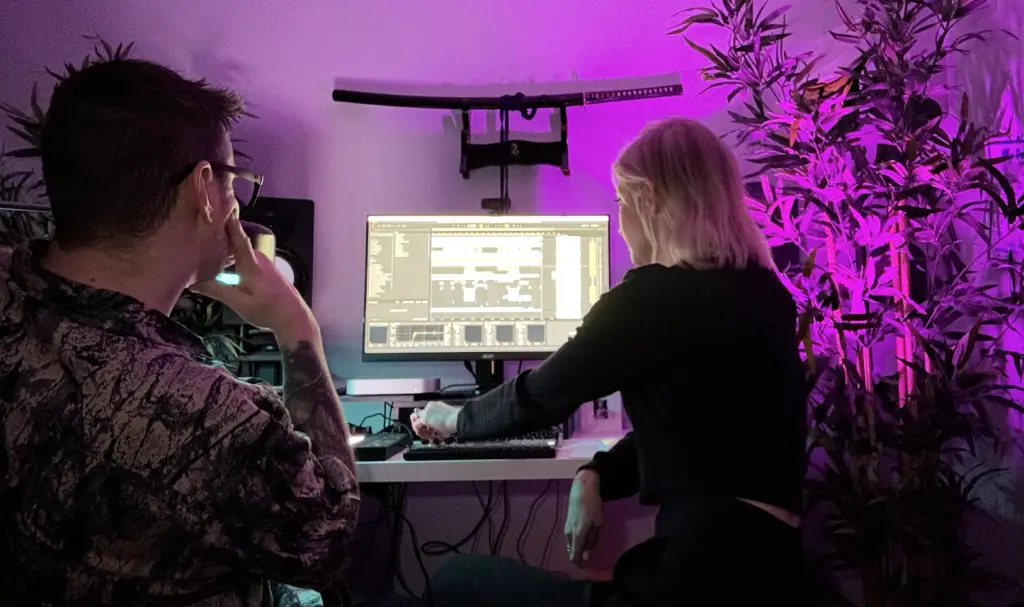
Dove City on Storytelling Through Sound in Sin & Redemption
Dove City has always had a way of turning raw emotion into something that sticks with you. Their latest album, Sin & Redemption, leans into that even harder, pulling from deep melodic instincts and a love for moody, evocative sounds. Josh and Danielle Dupont have built a project that feels both personal and universal, exploring the push and pull between darkness and grace with a sound that’s as heartfelt as it is haunting.
In this interview, we sat down with the duo to talk about the creative process behind Sin & Redemption, how they shape their signature atmosphere, and what fuels their approach to songwriting. They share insights on the emotions that drive their music, the themes that define this record, and what they hope listeners take away from it.
If you’ve been craving something that doesn’t just sit in the background but actually makes you feel something, this album is worth your time. Read on as Dove City takes us through the making of Sin & Redemption and what it means to them.
What role did collaboration play in shaping this album, either between you or with other artists?
Collaboration is the very foundation on which this album was conceived! Before writing Sin & Redemption, we hadn’t imagined a production “career,” let alone an album! We booked talent at a local club and played in the studio solely for fun. Our buddy, a literal genius, Derrick Boyd, aka Tone Of Arc, was playing a live set right after us. We left off on a song of ours that did not have a vocal at the time. Derrick sang improv over it. At that moment, we knew who would do the vocals for this track, and Coal In My Chest, our first single off the album, was born.
The marriage of Tone Of Arc’s vocal and our original song produced a track that is unique and timeless. But what label could appreciate something so raw and original? Only months before this production, we had also booked UNDERHER, owner of the label IAMHER. His appreciation for melancholy electronica made IAMHER the perfect home for Coal In My Chest. After falling in love with this one-of-a-kind track, he offered us the idea to write an album and include a few more songs alongside Tone Of Arc.
The album feels cohesive but not repetitive—how did you balance variety with a unified sound?
We’re adamant about remaining deep, moody, groovy, melodic, and vocal. Establishing an audible brand is important to us. Everything we write must boast this sound, which is genuine to our identity and pleases us personally. We intentionally utilized a unique VST in all eight tracks of the album. The instrument added a specific mood that is translated throughout. Organically, this process established continuity.
Time played a part in keeping the album from feeling repetitive. The writing process wasn’t condensed into a short period. Instead, we spaced the creative process over a longer duration. As we wrote this album, we did remixes for other artists along the way while acquiring new instruments, and our sound evolved. The auditory evolution of Dove City is easily heard throughout Sin & Redemption.
Why decide to release an album instead of algorithm-friendly singles like most producers do now?
We’re not concerned with algorithms or trends, which constantly change and do not accurately measure quality or success. In keeping with tradition, we released a drip of singles leading up to the LP, including remixes by exceptional producers. A remix album will be released later.
Follow-up question: how do you think albums vs singles/EPs affect how fans hear the music and how you, the artists, create the music?
An album allows the listener to hear a complete story and gives them a much better idea of what you’d sound like live. It’s a more immersive experience than a single allows.
The challenge for us, creating this album, was feeling slightly boxed in. There were times we wanted to take the music in a slightly different direction. Each song needed to make sense not only for the LP but also for the label’s brand.
Is there anything you’d approach differently if you were starting this album today?
It would have been helpful if we’d tried to see the big picture before jumping into production. The story came together as we wrote it instead of deciding what we wanted that story to be ahead of time.



